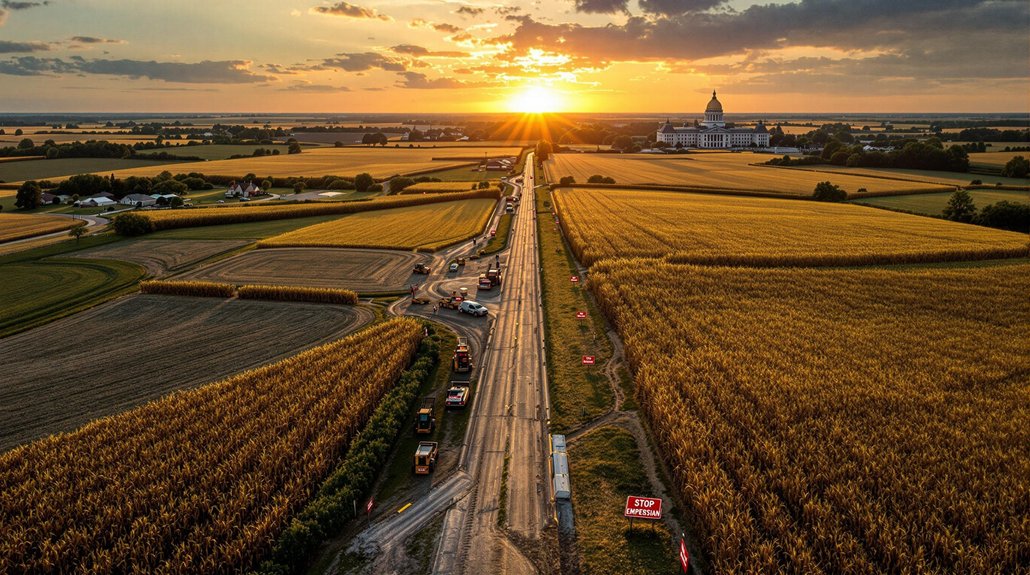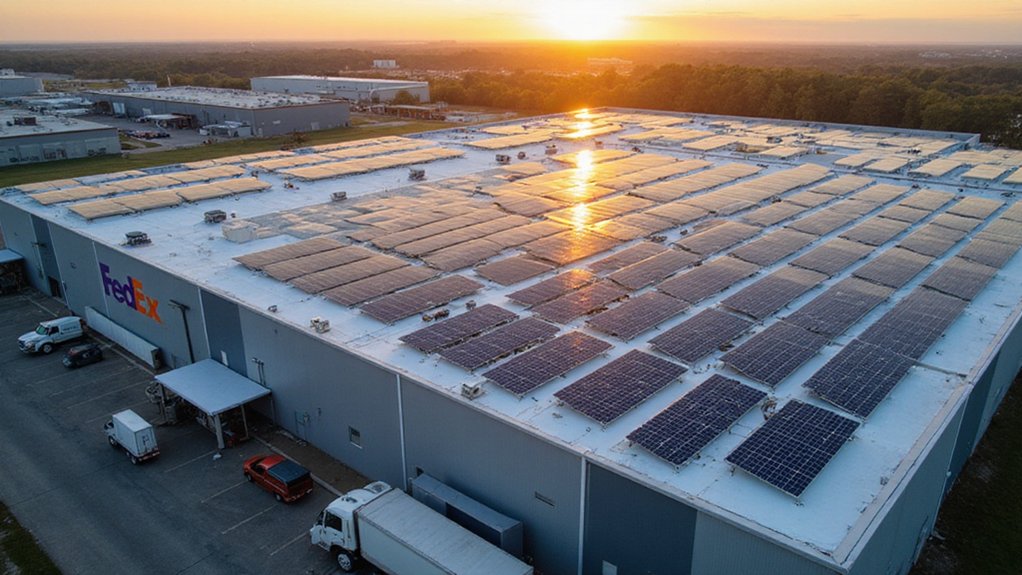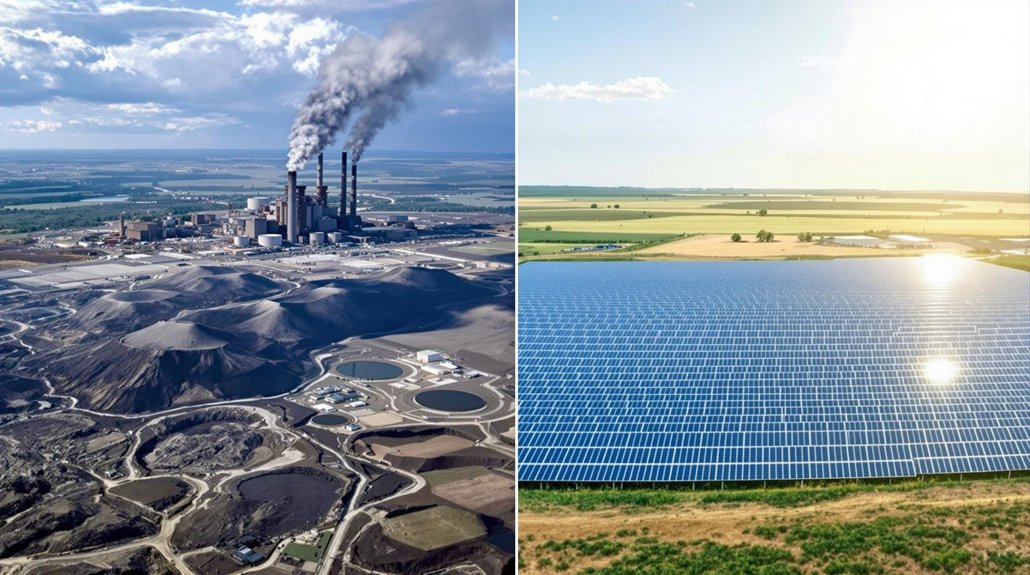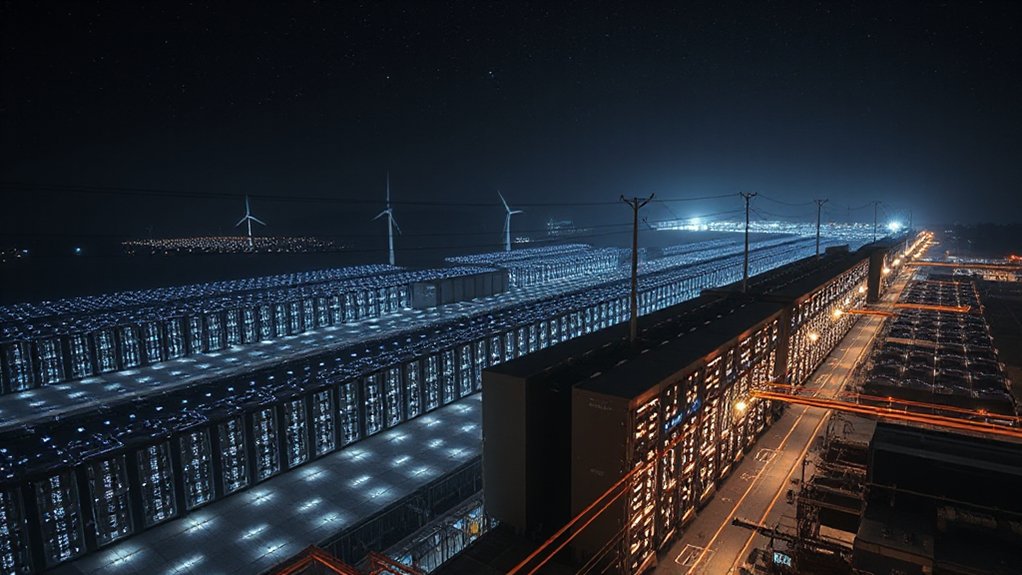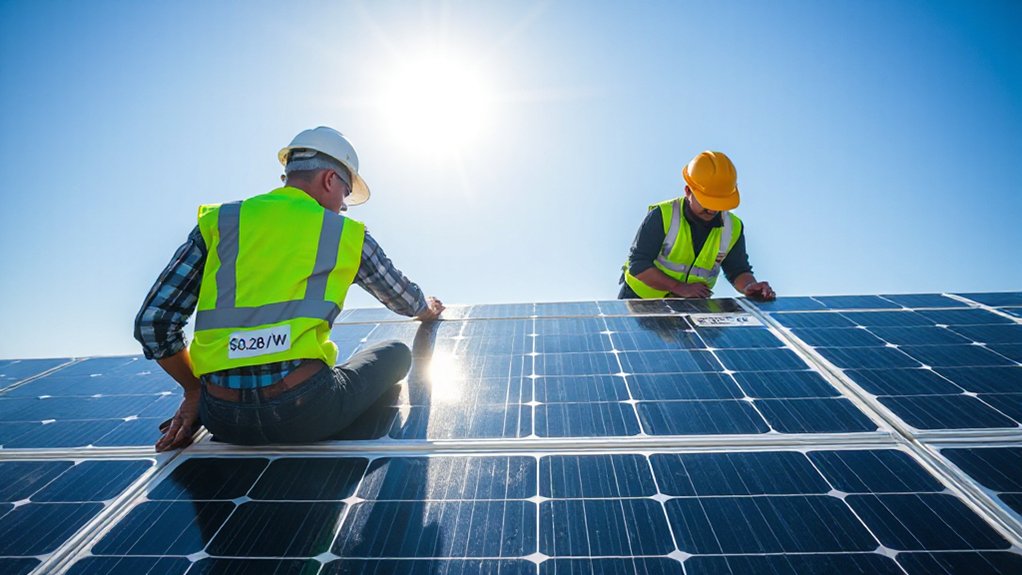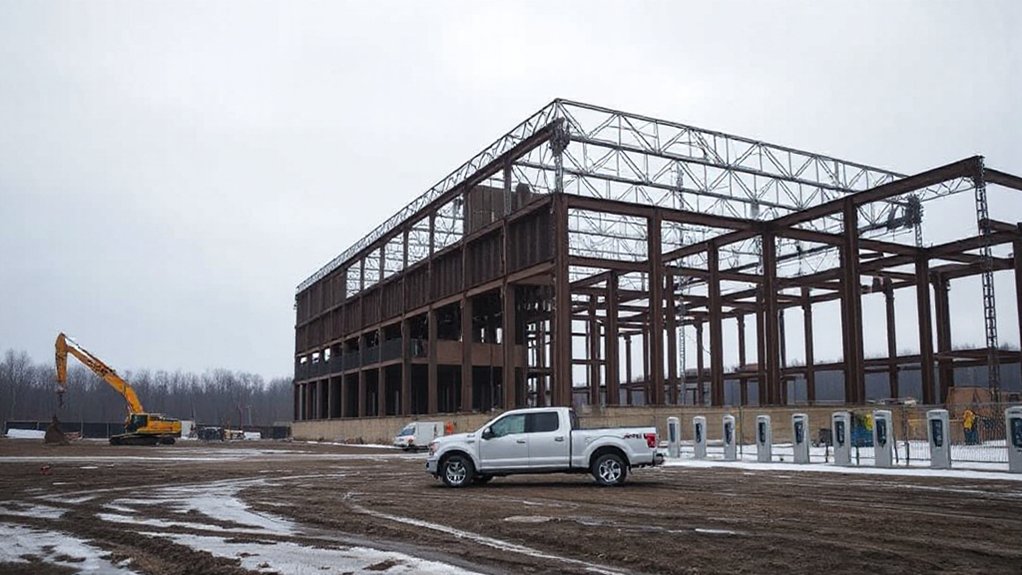Iowa’s House Republicans have passed bills restricting eminent domain use for carbon capture pipelines. The legislation aims to protect landowner rights against Summit Carbon Solutions‘ proposed 2,500-mile pipeline. While 75% of affected landowners have signed voluntary agreements, many others resist the project. The Iowa Utilities Board is reviewing Summit’s permit application without a set timeline. Similar bills haven’t advanced in the Senate, leaving the pipeline’s fate uncertain amid ongoing property rights debates.
While Iowa legislators remain divided on carbon capture pipelines, the battle over property rights and eminent domain has intensified in recent weeks. A group of 41 Iowa Republican lawmakers has called for new limits on using eminent domain for carbon pipelines, highlighting growing concerns about landowner rights.
The Iowa eminent domain battle has intensified as GOP lawmakers seek limits on carbon pipeline powers.
The Iowa House recently passed several bills to restrict eminent domain for carbon pipeline projects, but similar legislation hasn’t moved forward in the Senate. This split shows the complex politics surrounding the $8.9 billion Summit Carbon Solutions project, which would transport liquefied carbon dioxide from ethanol plants to underground storage in North Dakota.
Summit’s 2,500-mile pipeline would cross multiple states, including Iowa where 75% of landowners along the route have signed voluntary easement agreements. However, many property owners continue to resist, arguing that their land shouldn’t be taken for private company gain.
Neighboring South Dakota has already banned eminent domain for CO2 pipelines, forcing Summit to suspend its permit application there. This action puts pressure on Iowa lawmakers to evaluate similar protections.
House Republicans have proposed legislation that would allow lawmakers to block eminent domain for carbon pipelines. Supporters say elected officials should have the final say on taking private property, not appointed regulators at the Iowa Utilities Board.
“This isn’t about oil or gas pipelines,” one lawmaker noted. “Carbon capture pipelines only exist because of government subsidies, making them different.”
The debate also centers on whether these pipelines truly serve public use, a requirement for eminent domain. Pipeline supporters argue they guarantee the future of Iowa’s ethanol industry and boost the rural economy.
Legal challenges are mounting, with lawmakers planning to sue in federal and state courts if legislative efforts fail. The Iowa Utilities Board is still considering Summit’s permit request with no timeline for a decision.
Construction can’t begin in Iowa until the project receives approval in the Dakotas, leaving the pipeline’s future uncertain as the political and legal battles continue. Rep. Cindy Golding emphasized that despite Summit’s motion to temporarily pause its application, the pipeline project remains a threat to landowners who oppose the use of eminent domain. The Republican legislators involved in this fight view it as a fundamental defense of constitutional property rights, positioning themselves as advocates for Iowa’s farmers and rural landowners.
